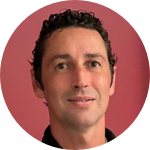About This Project
Endometriosis causes chronic pain and infertility, but current treatments are limited and often involve surgery. We are developing specialized immune cells that can find and destroy the harmful cells driving the disease. These engineered cells target a specific marker found on the abnormal tissue, offering a more precise and less invasive way to treat endometriosis.
Ask the Scientists
Join The DiscussionWhat is the context of this research?
Endometriosis happens when tissue similar to the lining of the uterus grows in places it shouldn’t, causing pain, inflammation, and infertility. Current treatments, including hormone therapy and surgery, often fail to provide lasting relief and do not eliminate the root cause of the disease,
The abnormal immune and fibrotic cells within endometriotic lesions express high levels of unique surface protein, fibroblast activation protein (FAP), which is not found on normal uterine cells . We are developing an immune cell therapy that targets this protein to selectively find and destroy the harmful cells driving endometriosis. This could lead to a precise, non-surgical treatment that directly addresses disease progression.
What is the significance of this project?
This project is significant because it addresses a major unmet need in endometriosis treatment. Current therapies, including hormone suppression and surgery, often fall short: symptoms return in up to 50% of patients within five years, and many experience serious side effects or cannot tolerate hormone-based drugs. Surgery is invasive, costly, and frequently requires repeat procedures. Our cell therapy offers a non-hormonal, non-surgical alternative that directly targets disease-driving cells in lesions. If successful, it could provide proof of concept data to develop cell therapies for lasting relief, reduce recurrence, and pave the way for innovative cell-based therapies in women’s health.
What are the goals of the project?
We will test whether engineered immune cells can kill T-HESCs (telomerase-immortalized human endometrial stromal cells), which model endometriotic tissue. Peripheral blood mononuclear cells (PBMCs) from healthy donors will be modified using a lentiviral vector to express a chimeric antigen receptor (CAR) targeting fibroblast activation protein (FAP), a surface marker found on fibrotic cells in endometriosis. GFP-labeled T-HESCs will be used as target cells. Engineered immune cells will be mixed with the T-HESCs in a lab dish (co-culture), and their ability to kill the target cells (cytotoxicity) will be observed using fluorescence microscopy. To measure cell killing, we will count how many GFP-positive cells remain after the mix. This proof-of-concept study will assess whether FAP-directed CAR immune cells can specifically target and kill endometriotic cells.
Budget
Our budget covers essential resources to test whether our cell therapy can target and kill cells in endometriotic lesions. Funding will support cell lines to model endometriotic lesions, viral vectors to engineer immune cells for targeted killing, assays to measure effectiveness, and lab rental for conducting experiments.
Endorsed by
 Project Timeline
Project Timeline
Over three months, we will establish GFP-labeled T-HESC endometriotic cell lines and prepare viral vectors for immune cell engineering. In Month 2, we’ll transduce PBMCs with the FAP-targeting CAR construct, followed by expansion and validation of engineered cells. Month 3 will focus on co-culture killing assays to assess cytotoxicity. Results will inform protocol optimization. Progress updates will be shared with backers, and findings will be communicated transparently.
Apr 30, 2025
Project Launched
Jun 30, 2025
Establish GFP-labeled T-HESC cell lines and prepare viral vectors for immune cell engineering
Jul 31, 2025
Transduce PBMCs with FAP-targeting CAR construct, followed by expansion and validation of engineered immune cells.
Aug 30, 2025
Conduct co-culture killing assays, analyze results, and optimize protocol based on findings
Meet the Team
Team Bio
This project is let by BIshwas Shrestha with my co-founder Zachary Pappalardo formerly at UCSF. this project was inspired by a friend’s wife with severe endometriosis. With backgrounds at Caribou Biosciences developing cell therapies for cancer and autoimmune diseases, we’re applying our expertise to create innovative treatments for endometriosis and address the lack of advanced therapies in women’s health.
Bjbs
Hello
Lab Notes
Nothing posted yet.
Project Backers
- 4Backers
- 3%Funded
- $261Total Donations
- $65.25Average Donation

